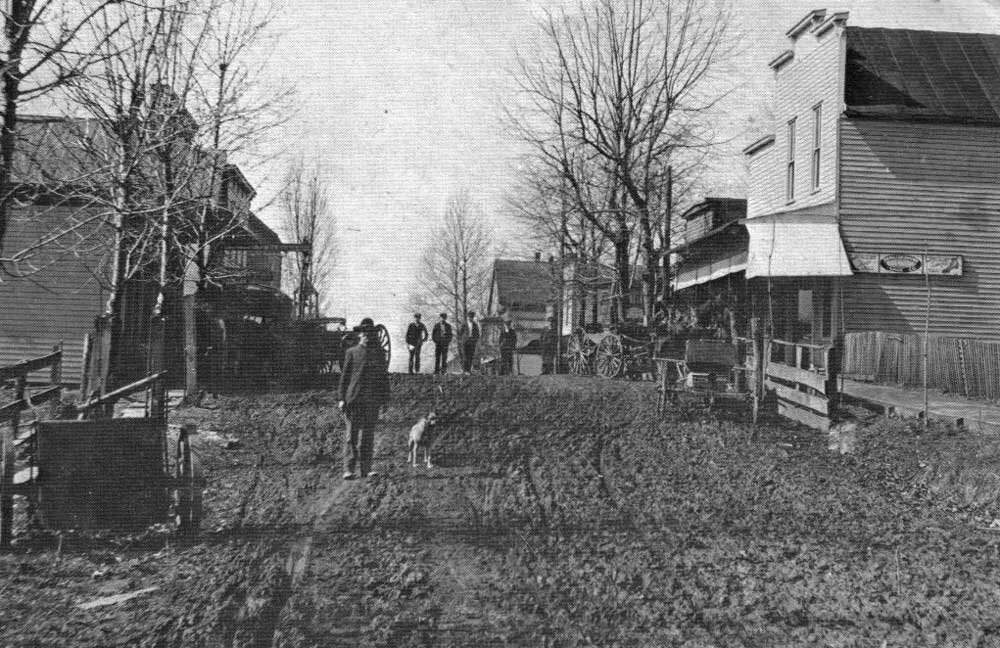The Story Of Our Town
Holland: A German Heritage and an American Venture
Why Holland?
Holland, Indiana proudly takes its place among Dubois County, Indiana’s German heritage tradition. Settled by German immigrants during the late 1830s, two differing groups developed the area. The first, made up primarily of peoples from Ladbergen, Kreis Tecklenburg, Prussia, homesteaded in what today is northern Cass Township and Southern Patoka Township. By 1850 over 200 individuals from Ladbergen and surrounding towns called southwest Dubois County home. By the end of that decade a second wave of German-Americans moved in to the southern part of the township. This group originally came from/near Osnabruck, Kingdom of Hanover and settled for a time in southern Ohio before moving west. While there were citizens from American states and other European countries, those speaking what locals referred to as Ladbergendish and Osnabruckish composed the majority of individuals when Henry Kunz decided to plat a town in 1859.
Henry Kunz arrived on the scene as the “American West” of the 1840s was rapidly opening to European settlers. A businessman, Kunz understood the potential of a general store near the intersection of the area’s two German communities as well as an juncture of the Huntingburg-Boonville Road. His enterprise became a social and economic center of the growing community. The store owner realized an official town would enhance his business; thus he platted and sold lots of Holland, Indiana in 1859. His initiative remained an anchor of the town for generations and grew to include general merchandise, hardware, a post office, and a photography studio. Henry and his wife Maria were buried in the Holland Methodist Cemetery.
Holland? How did a German community receive a Dutch name? It is simple actually. Farming was the occupation of a large majority of the Germans coming to southwest Dubois County. They left their Fatherland in search of homesteading a farm in the fertile soil of the American West. A challenge for many of these would-be German Americans was raising funds to make the journey to the United States. While jobs were difficult to find in their homeland, Holland, the Netherlands welcomed the farm laborers to work in the bogs and grasslands of the Low Country. Between planting and harvesting many men made their way to Holland in an annual event known as “Holland Gegangen” or Holland Going. The work was strenuous, but the financial reward made it worthwhile. With the economic gain many young men and families could book one way passage to the United States.
As southwest Dubois County became more populated, the need for workers to clear forests and build farms became lucrative to young men arriving from Germany. In neighboring Huntingburg, just like many of them did in Germany, workers found themselves leaving the largest community in the area to find employment in labor intensive fields in the countryside. Understandably, laborers dubbed the area in which they worked Holland. When men returned to Huntingburg and were asked where they were employed many responded with comments such as “We’re downing trees in Holland” (A reference to their years of difficult toil back in Europe). By the mid-1840s German Methodist circuit riders in their official journals referred to the area southwest of Huntingburg as Holland.
Prior to Holland’s official establishment in 1859, the area settlers centered in communities along church affiliation. Those of Ladbergen descent traditionally associated with the German Lutherans (now St. Paul/Augustana United Churches of Christ), and German Methodists and Evangelicals (now Holland, Zoar, and Huntingburg United Methodists). Settlers from Osnabruck connected with the Lutheran denomination (now St. James). With Kunz’s town organized settlers supported the slow but steadily developing town of Holland. Kunz’s venture became one the entire area would rally around.
Today’s Holland, with a population of 626 (2010 Census), continues forward with an elementary school (part of the Southridge/Southwest Dubois County School Corporation community), day care center, medical and dental clinic, volunteer fire department, branch bank, and large community park. With an agricultural base, the business community remains steady. With easy access to Interstate 64, and US 231, many of Holland’s citizens also work in neighboring communities of Huntingburg, Jasper, and Ferdinand. Each year Holland’s Community Fest celebrates Holland and highlights that the American venture continues in southwest Dubois County.
For More History
For a more detailed history on Holland see Holland History: Noteworthy Happenings in a Dubois County Town by Lee Bilderback.
For a more detailed history on the 1000 year history of Ladbergen see Ladbergen by F. Saatkamp.
